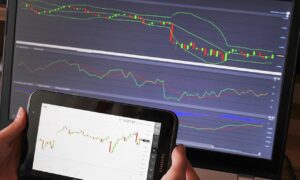Forex trading is an effective way to invest in financial markets. It entails buying and selling currencies on the foreign exchange market. To trade forex, you must first obtain a forex broker.
Your broker can have a considerable impact on your forex trading results, so proceed with vigilance. To ensure that you’re prepared for a successful and lucrative experience in the world of forex trading, make sure your choice of broker should be in line with your unique trading style and goals.
Regulatory Compliance
The regulatory compliance of a forex broker is one of the most important criteria to consider. Verify if the broker is accredited and overseen by a reputable regulatory body.
Your interests as a trader are protected by regulatory organizations like the US Commodity Futures Trading Commission (CFTC), the UK’s Financial Conduct Authority (FCA), or the Australian Securities and Investments Commission (ASIC), which monitor and maintain strict standards within the industry.
Trading Platform
The way you get to the foreign exchange market is through the trading platform. The platform offered by your preferred broker must be user-friendly, dependable, and furnished with key market analysis tools. The platform should be adaptable, allowing you to configure charts and indicators to fit your forex trading style. It should also be available on a variety of devices, including:
- PCs
- Laptops
- mobile devices
Spreads and Commissions
Your trading expenses can be greatly impacted by commissions and spreads, which is the difference between the price at which a currency pair is being bought and sold. Although lower spreads may be more cost-effective, it’s crucial to take into account the entire trading environment and the broker’s fee transparency.
Leverage and Margin Requirements
Utilizing leverage enables you to manage a greater position with less capital. However, it has two edges and can increase both gains and losses. The leverage options and margin requirements of a broker should be compared to your risk tolerance.
Deposit and Withdrawal Methods
The transaction process must be simple and secure. Check to see if the broker accepts accessible deposit and withdrawal options in your area. Also, confirm any associated costs and turnaround timeframes.
Customer Support
Customer Support Effective and responsive customer support can significantly impact your trading experience. Assess a broker’s dedication to meeting your needs by posing questions or raising issues about their customer service.
Educational Components
Forex trading can be challenging, particularly for newcomers. A broker that offers learning tools like webinars, tutorials, and market research can be a helpful resource for improving your trading expertise.
Research Tools and Analysis
It can be beneficial to have access to research resources, technical analysis, and economic calendars. Making informed trading selections might be aided by a broker who provides extensive research resources. In addition, you can consider the best forex brokers in Australia in order to get the best experience.
Trading Times and Assistance
The forex market is open for Five days a week, 24 hours a day. If you plan to trade during specific hours, find out if your broker provides customer service during those times, especially if you live in a different time zone.



































